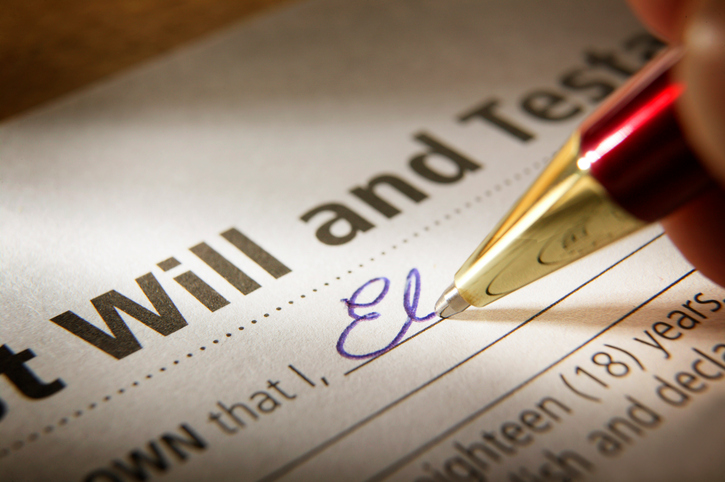Readers of the Independent, and likely a host of other British online newspapers, may have recently seen an advert with the title “Incredible New Will Writing Service Sweeps the UK.” The headline is accompanied by an image of a man clasping his forehead, presumably in regret over the superiority of this new will writing service over the poor one which he had already used.
Will writing services are nothing new, and there’s nothing to suggest any of them are really “sweeping the UK,” regardless of any new methods. Though a quick, cheap, Independent-advertised will writing service might leave you with a working legal document, it’s worth your while to pay whatever it takes to get the best possible will. And needless to say, writing your own will is only advised in very specific situations.
More goes into writing a will than you might think
Granted, most people would rather never think about wills if they didn’t have to. But unless we want our estates to end up in a legal nightmare, it will be a necessity at some point. The “will reading” has become a staple of popular culture. A distant relative dies, so the main characters gather in a lawyer’s office as the lawyer reads out who inherits what. £500,000 to the granddaughter, the car and the trailer to the nephew and so on. These kinds of itemised lists make will-writing sound very simple. But it isn’t.
You can’t simply think up a list of your possessions, think up a list of your favourite family members and grab a pen and paper. For one thing, you don’t know how much your estate will be worth when you die; you may know the value of your house, and how much money you have in the bank, but when the time comes other factors come into play.
Inheritance tax, for example, will be set at 40% of all wealth over £325,000. To figure out the impact this will have on your wealth distribution, probate valuation services will be needed. Clearance Solutions defines probate valuation as “the legal right to oversee the affairs of the deceased prior to the estate being distributed according to the will.” This is particularly important when it comes to the physical possessions you leave behind in your home. It might not immediately be clear how much these items are worth, who should inherit them, and where they should go. Although, there are useful strategies and tips for avoiding inheritance tax and it is worth checking them up.
While your will has to name an executor, it does not have to name a probate valuation professional. It is, however, worth exploring potential evaluators before you pass away, and discussing how to handle probate valuation ahead of time with your chosen executor. A solicitor should be able to help you draw up a will that takes probate valuation into account.
Wills are only effective if they are written in a certain way
It’s actually fairly easy to make a will legal. Money Advice Service says you could “scribble your will on a piece of scrap paper” and still make it legitimate. It’s not a good idea to go that far, but the process of legitimisation is surprisingly simple: all it takes is a signature from you, and two independent adult witnesses who were there when you signed it.
In theory, a DIY will has just as much value as an expert-assisted one. But this is rarely the case in practice. Over time, a body of conventions has built up around the way wills should be written. The language may seem unusual to some—there’s a reason it’s known as “legalese”—but it serves an important purpose. It helps remove any doubt as to what you are saying in your will, which means there will be no ambiguity over who is meant to get what, and a minimal chance that anything could slow down proceedings and cost your dependants money.
The Guardian has estimated that a poorly-written DIY will can cost up to 10% of the deceased’s estate value in additional legal fees. With costs like this, it is more than worth your while to hire a solicitor to help with your will.
If your will is going to be exceptionally simple, writing it yourself may be feasible. The Money Advice Service recommends DIY wills for those who simply want to leave everything to their partner or children. If you are leaving behind a more complex estate, though, you will need to get a professional.
The government advises people to seek specialist advice if you are not married to your partner, if there are multiple family members who might “make a claim on your will” (such as children from other marriages), if you live outside of the UK, or if you run a business. These conditions are far from niche. So it is worth following the government’s recommendations if any of these things apply to you.
While there is a certain appeal to writing a will yourself—it seems quicker and easier, for one—the welfare of your loved ones after you die is too important to leave up in the air. Paying more for a professional will now may well save them money when you are gone.



 Bitcoin
Bitcoin  Ethereum
Ethereum  Tether
Tether  XRP
XRP  Solana
Solana  USDC
USDC  TRON
TRON  Cardano
Cardano  Lido Staked Ether
Lido Staked Ether  Avalanche
Avalanche  Toncoin
Toncoin